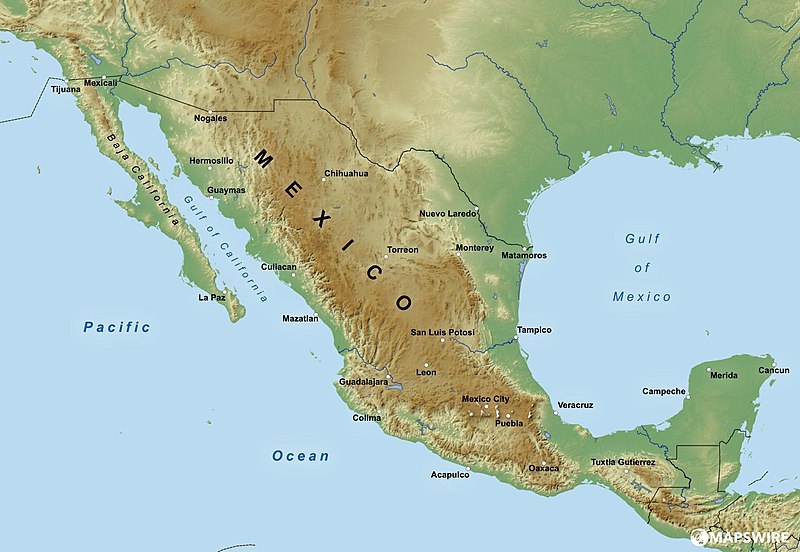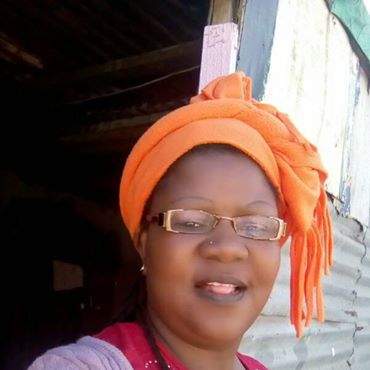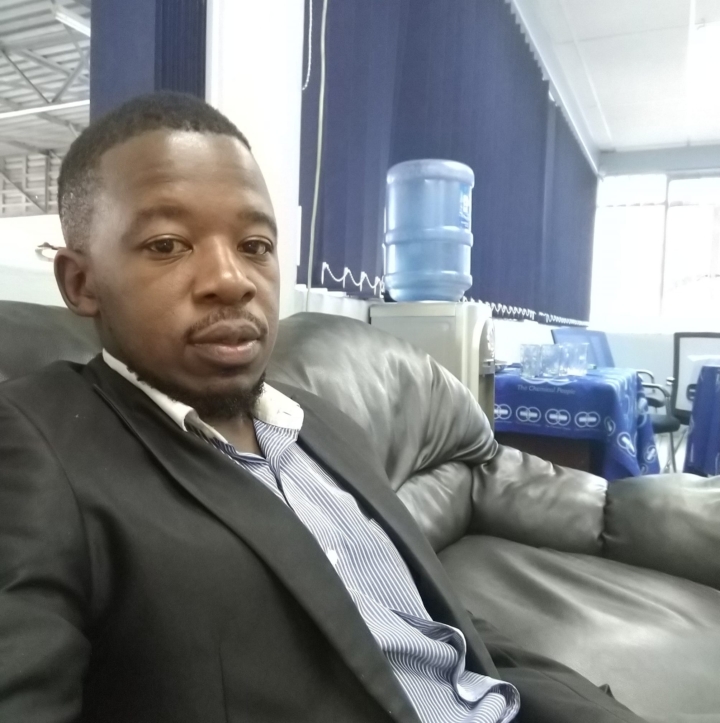米国ロサンゼルスに拠点がある宣教団体サーヴァント・パートナーズから予期せぬ手紙を受け取ったとき、ビューティー・ンドロとその夫は、故郷ジンバブエ(アフリカ大陸の南部)の首都ハラレ郊外に住み、スラムの住民たちに奉仕しているところだった。手紙には、メキシコで奉仕するアフリカ人を探すように導かれていると書かれていた。そこで、同じような志を持つアフリカ人宣教師をネットで探し、ンドロとその夫を見つけたという。
[toggle]Beauty Ndoro and her husband had been living among and serving the residents of slums outside Harare, the capital city of their native Zimbabwe, when they unexpectedly received a letter from Los Angeles–based missions organization Servant Partners. The letter said Servant Partners felt led to recruit Africans to serve in Mexico. They had gone online to search for like-minded ministers in Africa—and came across Ndoro and her husband. [/toggle]
(地図:mapswire)
二人は以前、別のアフリカ南部の国で奉仕することを検討したことがある。また、夫がチベットに宣教する導きを感じたこともあったが、北米南部にある「メキシコ」が頭をよぎったことはこれまで一度もなかった。二人は返事をしなかったが、サーヴァント・パートナーズはその後も続けて、半年の間に2通の手紙を送ってきた。
[toggle]The couple had considered serving in another southern African country. Ndoro’s husband felt a burden for Tibet. But Mexico? That had never crossed their minds. They ignored the letter. Servant Partners persisted, sending two more letters over the next six months. [/toggle]サーヴァント・パートナーズの共同責任者リザ・エングダールによると、同団体は、世界で最も貧しいコミュニティーで奉仕することを望む宣教師を広範囲に探している。「私たちは高い需要に応えるため、常に幅広く人材を求めています。私たちのチームでは可能な限り多様性を高めるようにしているのです」。ンドロとその夫に呼びかけたのは、「アフリカの教会にはすでに、神によって異文化交流の牧会へと招かれた、信仰深くたくましいリーダーがたくさんいる」という認識によるものだった。
[toggle]Lisa Engdahl, co-general director of Servant Partners, says they typically search far and wide for missionaries willing to serve in the world’s poorest communities. “We are always trying to recruit a breadth of people because of the demands of our work,” she told me. “Our teams have looked to diversify as much as possible.” The recruitment of Ndoro and her husband was a recognition that “there are many strong, godly leaders in the African church whom God is calling into cross-cultural ministry.” [/toggle]
ビューティー・ンドロ(自身のフェイスブックより)
ンドロは語る。「私が家族から遠く離れ、異文化に行くことを神が望んでいるのか、確信は持てていませんでした。私はスペイン語が分からないし、まだ2歳の娘がいましたから」。しかし周りの人から、「神様はあなたにメキシコに行くよう呼びかけているんじゃないか」と励ましを受けるようになった。
[toggle] “I wasn’t sure if God wanted me to move so far from family, to go to a different culture,” Ndoro told me. “I didn’t know any Spanish, and my daughter was only two years old.” But then she started receiving confirmation from others. “I hear ‘Mexico’ and God’s calling upon your life,” they told her. [/toggle]時間が経つにつれ、メキシコ行きを神が望んでいることが明らかにされていった。ンドロは言う。「恐れもありましたが、とても楽しみでもありました。神が私たちと共におられることが分かっていたので」
[toggle]Eventually, it became clear that Mexico was where God intended them to go. “I had my own fears, but I was so excited,” Ndoro said. “I knew God was going to be with us.” [/toggle]それは10年前のことだ。それからンドロとその家族はメキシコとニカラグアで奉仕し、都市部のスラムに住みながら、聖書の学びと、トラウマを持つ人々のグループの癒やしのための働きに従事している。聖書の学び会はいくつかの教会を生み出すほどに成長した。
[toggle]That was ten years ago. Since then, Ndoro and her family have served in both Mexico and Nicaragua, living in urban slums and leading Bible studies and recovery groups for survivors of trauma. Several of these Bible studies have grown into new churches. [/toggle]ンドロは課題を抱えながらも、ジンバブエ出身で黒人女性の自分がラテン・アメリカに行くよう神が望んだことを疑っていない。「私は、自分が『キリストにある者』であり『アフリカ人』だと知っています。だからこそ、『誰もが神の目に尊い』ことを人々が理解できるよう手助けできるのです。富の有無や社会的地位、肌の色に関係なく、誰もが価値があるのです」
[toggle]While there have been challenges, Ndoro has no doubt that Latin America is exactly where God wants her, a black Zimbabwean woman, to be. “Because of knowing who I am in Christ and as an African, that has helped me help others understand that they are worthy before God. They are valued regardless of economic or social status, or skin color.” [/toggle]宣教師の新しい波
[toggle]A New Wave of Missionaries[/toggle]ビューティー・ンドロのケースは、グローバル・サウス(アフリカ、アジア、ラテン・アメリカ、カリブ海域諸国など)から世界へ派遣されている宣教師の一つのあり方であり、こういった傾向は増えている。ゴードン・コーンウェル神学校グローバル・キリスト教研究センターによる報告書「1970年~2020年のグローバル視点で見たキリスト教」によると、グローバル・サウス出身の信徒が占めるキリスト教徒の割合は、1970年の43%から、2020年には66%に増加するとされ、50年までには75%に達する可能性もある。北米と西ヨーロッパでは無宗教の人数が急速に増加しているにもかかわらず、これらの地域ではキリスト教徒が勢いを増しながら増え続けているのだ。
[toggle]Beauty Ndoro is part of a growing movement of international missionaries sent out from the Global South, which includes Africa, Asia, Latin America, and the Caribbean. According to Christianity in Its Global Context, 1970–2020, a report by The Center for the Study of Global Christianity at Gordon-Conwell Theological Seminary, 66 percent of all Christians will be from the Global South by 2020, up from 43 percent in 1970. This could reach 75 percent by 2050. Christianity is surging in these regions, even as North America and Western Europe see the number of religiously unaffiliated growing at an increasingly rapid pace. [/toggle]世界的に見た教会の人口情勢が変われば、国外宣教に対する見方も変わる。以前、「クリスチャニティー・トゥデイ」でも報告されたように、今世紀の初めごろ、宣教師の形態は劇的にシフトした。「グローバル視点で見たキリスト教」の言葉を使えば、「西洋の宣教師が海外各地に赴く」というモデルから、「ほぼすべての国からあらゆる国に宣教師を派遣する」というモデルに変化したのだ。
[toggle]As the demographic center of the global church shifts, so too does fervor for international missions. As Christianity Today has previously reported, the beginning of this century has marked a dramatic swing from the model of Western missionaries going out to the rest of the world to “the sending of international missionaries to all of the world’s countries from almost every country,” according to Christianity in Its Global Context. [/toggle]「世界キリスト教データベース」の報告によると、最も多くの宣教師を派遣しているのは依然として米国だが、その人数は減少している。2010年には12万7000人いた米国人現役宣教師は、15年(現状最新データ)には12万1000人まで減少している。しかし同時期、西洋諸国以外の宣教師の数は大幅に増加した。たとえば、ブラジルからの宣教師は3万4000人から3万5000人に、韓国人は2万人から3万人に跳ね上がっている。
[toggle]The World Christian Database reports that while the US still sends out the most missionaries, that number is decreasing. There were 121,000 active American missionaries in 2015 (the most recent year for which data is available), down from 127,000 in 2010. During that same period, the number of missionaries from non-Western countries increased significantly. Brazil, for example, went from 34,000 to 35,000 missionaries, and South Korea leaped from 20,000 to 30,000 missionaries. [/toggle]グローバル・サウスから宣教師を送り出すことは、まったく新しい動きというわけではない。たとえば、エルサレム回帰運動(中国の家の教会の運動の一つ。旧シルクロード沿いの仏教徒、ヒンドゥー教徒、イスラム教徒に福音を伝えるため、10万人の宣教師を派遣した)の起こりは1920年代までさかのぼる。その運動は、2003年に亡命した「家の教会」のリーダーである刘振营(別名ブラザー・ユン)によって再燃している。社会学者レベッカ・キムは『聖霊は西洋へ──米国の韓国人宣教師』(The Spirit Moves West: Korean Missionaries in America)の中で、70年代から米国人(特に白人)に福音を伝え返すために韓国から宣教師が送られるようになったと述べている。センド国際宣教団(本部米国)に所属するフィリピン派遣委員会は、30年以上にわたって宣教師を海外に派遣している。
[toggle]Missionary movements from the Global South aren’t entirely new. For example, the Back to Jerusalem movement—an effort by Chinese Christians to evangelize all the Buddhist, Hindu, and Muslim people groups who live along the old Silk Road—traces its roots back to the 1920s. It was newly revitalized in 2003 by exiled house church leader Liu Zhenying (also known as Brother Yun). South Korean missionaries have been going to the US since the 1970s to “‘bring the gospel back’ to Americans, particularly white Americans,” reports sociologist Rebecca Y. Kim in The Spirit Moves West: Korean Missionaries in America. The Filipino Sending Council, affiliated with US-based SEND International, has been sending missionaries abroad for more than 30 years. [/toggle]しかし、これだけ多くの宣教師がアジアやアフリカ、ラテン・アメリカから国境を越えて、時には自分たちに福音をもたらした宣教師の故郷にまで向かったのは初めてのことだ。2015年、宣教師を送り出している国のトップ20に、ブラジル、フィリピン、中国、インド、ナイジェリア、南アフリカを含む9つの国がランクインした。これらの国は、「発展途上国」とも呼ばれる多数派グループの国だ。その宣教師の数は合計10万1000人にのぼる。その働きにはさまざまな形態があり、テントメーカー(仕事をしながら無給で宣教活動をすること)、寄付支援による無料奉仕、団体間協力の働き、伝道、教会を立てる働き、インカーネーショナル牧会(土着文化に根差しつつ宣教活動をすること)など、それぞれ独自の強みと活気に満ちた信仰を持っている。
[toggle]This is the first time, however, that the world has seen so many missionaries from Asia, Africa, and Latin America crossing national borders, including going to the homelands of the missionaries who first brought them the gospel. In 2015, 9 of the top 20 sending countries—including Brazil, the Philippines, China, India, Nigeria, and South Africa—were in the majority world (also referred to as the developing world), with a total of 101,000 international missionaries. These missionaries come in all forms—tentmakers and donor supported, organization affiliated and free agents, evangelists and church planters and incarnational ministers—but they each bring unique strengths and a vibrant faith. [/toggle]互いにつなげられた体
[toggle]The Interconnected Body[/toggle]グローバリゼーションは世界の経済をつなぎ合わせ、移住や経済的流動性、情報アクセスを高めることによって世界宣教を促進した。国連の報告では、国際移民の数は毎年急速に増加しており、2017年には2億5800万人が記録されている(そのうち難民・亡命希望者は10%のみ)。世界のインターネット・ユーザーは、15年の31億8000万人から、現在の43億4000万人と大幅に増加している。世界各国の教会に関する情報を含め、ニュースなどの情報は、世界のほぼすべての地域に届けられている。
[toggle]Globalization has tied the world’s economies together, but it has also facilitated international missions through increased migration, economic mobility, and information access. The United Nations reports that the number of international migrants is growing rapidly each year, with 258 million recorded in 2017. (Only 10 percent of these were refugees and asylum seekers.) Today, more than 4.34 billion people in the world, or 56.8 percent of the global population, have internet access, up significantly from 3.18 billion in 2015. News and information, including news about the global church, can reach nearly every corner of the world. [/toggle]
タテンダ・チクウェクウェ(自身のフェイスブックより)
「教会が閉鎖されているとはどういうことですか。人々がより世俗的になっているから? それとも、教会に若者がいないからですか」とジンバブエのタテンダ・チクウェクウェは振り返る。ハラレにある地元の教会で、北米やヨーロッパでのキリスト教の衰退について聞いた時のことだ。「豊かなキリスト教の伝統や教会の歴史を持っている国々が衰退していくのを見て、心が絶えず折られていくような気持ちでした」
[toggle] “What do you mean churches are shutting down? They’re becoming more secular? Less young people are in the church?” Zimbabwean Tatenda Chikwekwe recalls thinking as his home church in Harare heard about Christianity’s decline in North America and Europe. “To see nations with such strong Christian heritage, rich church history, to see the recession in that—my heart was being broken constantly,” he told me. [/toggle]チクウェクウェは2002年に宣教師として派遣され、東アフリカ各地のさまざまなミニストリーに参加した後、ケニアの単立教会ナイロビ・チャペルの牧師スタッフに加わった。そこでリーダーたちは、グローバル・ミッションにおけるアフリカの教会の役割について意欲的な対話の働きに従事した。彼らは、「キリストの体の異なる部分」(1コリント12章)を構成する役割についてグローバルな観点から学び、アフリカはより多くの働きをなすべきだという結論に至った。
[toggle]After being sent out in 2002 and participating in various ministries around East Africa, Chikwekwe joined the pastoral staff at Nairobi Chapel, a nondenominational church in Kenya. There, the leadership was engaged in an intentional conversation about the role of the African church in global missions. They studied the teachings of 1 Corinthians 12, about the roles of different members of the body of Christ, from a global perspective—and concluded that Africa, as an essential member of the global church, needed to do more. [/toggle]ナイロビ・チャペルのグローバル・パートナーシップ部門牧師であるフェイス・ムゲラは、そこで始まったミッション活動の主要なリーダーの一人だ。「長い間、私たちは大宣教命令を『西洋世界に与えられた使命だ』と感じてきました。しかし、自分たちを世界的なキリストの一部であると信じているでしょうか。もしそうなら、私たちは自分をそこから外すことなどできません。アフリカの教会としての私たちが正しく機能していなければ、世界的な体は『一部が欠けた状態』なのです」
[toggle]Faith Mugera, pastor of global partnerships at Nairobi Chapel, is one of the key leaders of the resulting missions efforts. “For a long time, we felt like the Great Commission was a mandate given to the Western world,” she explained. “But do we believe that we are part of the global body of Christ? If so, then we absolutely cannot dismiss ourselves from that. If we as the African church are not functioning right, then the global body is missing out.” [/toggle]ナイロビ・チャペルは、グローバル・サウスのミッションに対する戦略的なアプローチの最先端にあり、その勢いは続いている。チクウェクウェや他の宣教師たちは、世紀の変わり目にあって、資金もコネクションも不十分な状態のまま、「どこであっても福音を伝える」という計画以外には何もない状態で送り出された。現在は、西側諸国の協力団体から借り入れをしつつ、目標設定、トレーニング、戦略的パートナーシップに重点を置く教会やミニストリーも増えている。
[toggle]Nairobi Chapel is at the leading edge of an increasingly strategic approach to missions among Global South Christians. At the turn of the century, Chikwekwe and other missionaries like him were often sent out with few resources, minimal connections, and no plan aside from sharing the gospel wherever they could. Now more churches and ministries are borrowing from their Western counterparts and placing a heavier emphasis on goal setting, training, and strategic partnerships. [/toggle]たとえばムゲラやその同僚たちは、「世界に300の教会を設立する」という大胆な目標を設定した。そのうち20教会はアフリカの首都に、10教会は影響力の強い国際都市に作られる予定だ。この目標のために、彼女らは毎年、若いリーダーを3つのグループに分けてトレーニングを実施している。その内容は「リーダーシップ」、「スピリチュアルな成長」、「対応力や人間関係などのライフスキル」などだ。ナイロビ・チャペルはすでに牧師や教会の立ち上げメンバーを、シカゴ、ロンドン、シドニー、クライストチャーチに派遣している。次のミッション対象地はサンフランシスコで、昨年はそのために祈り、断食に励んだ。
[toggle]Mugera and her colleagues, for example, have set the audacious goal of planting 300 churches worldwide, with 20 of those in capital cities across Africa and 10 in international cities of influence. To support this goal, they train three separate cohorts of young leaders each year in leadership and spiritual development, as well as life skills like resourcefulness and relationship building. Nairobi Chapel has already sent ministers and church planters to Chicago, London, Sydney, and Christchurch. Their next mission field: San Francisco, which they have spent the last year praying and fasting for. [/toggle]従来のモデルではないミッション
[toggle]Missions Outside of Traditional Models[/toggle]別にこれは、ナイロビ・チャペルのようなグローバル・サウスの組織が北米やヨーロッパの人々と同じようなアプローチでミッションに臨んでいるという意味ではない。「旧来のモデルは私たちのコンテクスト(文脈)では機能しません」とムゲラは言う。「そうしたミッション・モデルでは長い期間、学ばなければならないし、多くの財政的支援が必要です」。しかし、そうした財源を多くのアフリカ人がすぐに利用できるわけではない。「私たちには財源がないし、ビザを取るのも教育機関に入るのも簡単ではありません」
[toggle]That doesn’t mean that Global South organizations like Nairobi Chapel are approaching missions in the same way as North Americans and Europeans. “Previous models don’t work in our context,” Mugera said. In those missions models, “you have to be in school for a long time. You have to raise a lot of financial support. You need a missions agency.” But these resources aren’t readily available for most Africans. “We don’t have finances. We don’t have the same visa access. We don’t have easy access to education.” [/toggle]こういった課題から、ナイロビ・チャペルや他の教会・宣教団体においては、国境を越えたコラボレーションや代替ビザなど、クリエイティブに宣教師を派遣する方法を考えることが多い。ナイロビ・チャペルがアフリカ以外の地域に派遣する際には、既存の教会施設を利用して牧師を派遣し、ビザを後援し、住まいを提供し、支援費用を募金で集める。
[toggle]These challenges have forced Nairobi Chapel and other churches and missions organizations to think creatively about how to send out missionaries, often relying on multinational collaborations and alternative visa options. Outside of Africa, Nairobi Chapel relies on existing local churches to invite their ministers, sponsor their visas, provide homes, and raise financial support for their expenses. [/toggle]ほかの宣教師たちは、グローバル化が進む経済と雇用市場に注目している。2015年以降、中国政府はアフリカに1200億ドル投資することを約束し、数十万人の中国人労働者や起業家が成功を求めてアフリカに行くことを可能にした。私が話したことのある香港出身のカップルの一人は、「アフリカや他の場所に移住している中国人ビジネスマンを伝道対象にしている」と言い、また「そのビジネスマンの中にいるクリスチャンが伝道者になるように働きかける」と言っていた。フィリピンのミッション・グループでは、海外で働くエンジニアから家事手伝いまでのあらゆる職種のフィリピン人200万人以上が、雇用主、同僚、隣人などにテントメーカーとして伝道できるよう、トレーニングを施されている。(後編に続く)
[toggle]Other ministries are capitalizing on an increasingly global economy and job market. Since 2015, the government of China has committed to investing $120 billion in Africa, enabling hundreds of thousands of Chinese workers and entrepreneurs to move to the continent to seek economic opportunity. One Hong Kong–based couple I spoke with is targeting Chinese businesspeople migrating to Africa and elsewhere, challenging the Christians among them to also be evangelists. In the Philippines, missions groups are training some of the more than 2 million Filipinos who work abroad as everything from engineers to domestic helpers, equipping them as tent-making missionaries who can witness to their employers, colleagues, and neighbors. [/toggle]
